
'Avatar' and 'Star Wars' Fans Will Have to Wait Years to See Next Films
Walt Disney Co. updated its film release schedule on Tuesday, delaying some major films by as long as
2023-06-14 00:46
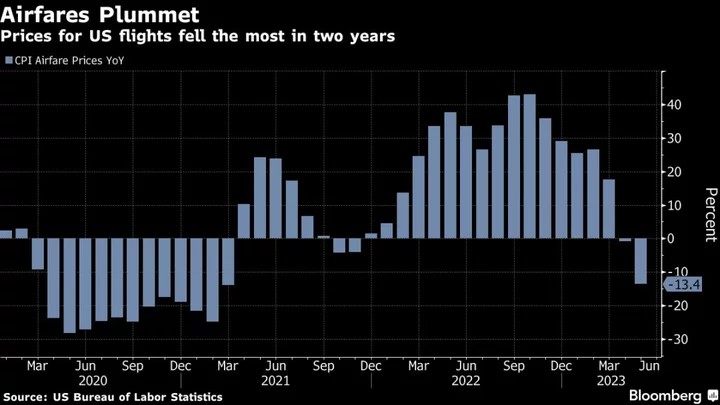
Travelers Catch Break as US Airfares, Rental Car Prices Fall
Restless Americans fueling white-hot demand for travel caught a break last month thanks to lower prices for airline
2023-06-14 00:46

Earning Money on YouTube Just Got Easier
YouTube is lowering its entry requirements for joining the YouTube Partner Program (YPP), which unlocks
2023-06-14 00:25
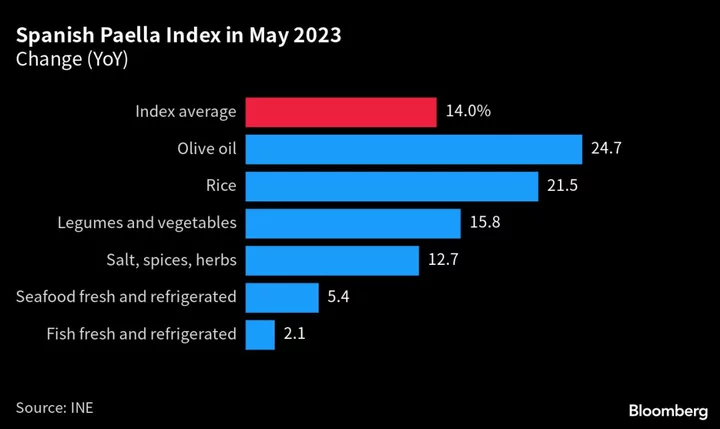
Price of Paella Shows Spaniards Still Struggling With Food Costs
The rate of overall Spanish inflation has fallen below 3% for the first time in almost two years
2023-06-13 23:22

Should you sleep naked? Heatwave myths debunked
It’s safe to say summer has officially started. Temperatures are now firmly above 25C across much of the UK, the sunshine is hotter, noses are stuffy and the air is muggy, sometimes making it difficult to sleep. Keeping cool in a heatwave is a priority – but it also gives rise to various theories and myths on how to achieve this… Sleeping naked cools you down Sleeping naked seems like the easiest and quickest way to cool your body temperature down after being out all day. But this isn’t necessarily the case, according to Abbas Kanani, a superintendent pharmacist at Chemist Click Online Pharmacy. “Sweat collects on the body and remains there when we have no clothes on,” Kanani explained. “Although having less layers on the body can help you to feel more comfortable in the heat, wearing lightweight nightwear made from breathable fabrics helps draw sweat away from your body and makes you feel a lot cooler and more comfortable.” So what should you wear at night to keep cool? “Clothing made from natural fabrics like cotton or linen are breathable and absorbent,” Kanani recommended. “They will soak the sweat up off your skin and they let air through, which cools you down.” People don’t die from heat in this country The UK sun can feel different compared to when you are sunbathing and drinking cocktails on a beach in Barcelona – but that can catch people out. “The biggest myth is that the weather in the UK isn’t hot enough to be dangerous,” said Dr Adam Staten, a clinical director at One Day Tests and NHS GP. “Whilst we don’t have that many really hot days, when it is hot, it can be fatal. For example, during the heatwave last summer, hundreds more people died than normal for that time in the year.” Staten suggests we overcomplicate things when trying to keep cool. “Most measures are really simple and include common sense measures like keeping curtains drawn, keeping windows open or taking cool showers or baths.” Sticking to hot drinks will keep you cool Who else thinks drinking tea or coffee in hot weather will cool you down? For Staten, “One myth that seems to come up a lot is that hot drinks are better for cooling you down than cold drinks. I think the evidence actually shows that it doesn’t really matter – as long as you are keeping hydrated, your drinks can be hot or cold.” Pharmacist Kanani agrees with that final point. “Hydration is vital for keeping cool in hot temperatures. Drink plenty of fluids, especially water, to stay hydrated. Avoid excessive consumption of caffeinated or alcoholic beverages as they can contribute to dehydration.” You only need to wear sunscreen when the sun’s out Another common misconception is thinking that you can’t get sunburnt when it is cloudy outside. “This isn’t true,” Kanani said. “Although it’s less likely than when you’re out in full sunshine, clouds don’t block all of the sun’s UV rays.” It’s also why people either only apply sunscreen in the morning or none at all. “Many people think that when sunscreen is waterproof, it means they do not need to reapply it after swimming or sweating. It should be reapplied straight after you have been in water, towel drying, sweating or when it may have rubbed off.” Sunburn is something to be careful of. Staten said: “It’s really common and can actually be very severe both in the short term and for the longer term risk of skin cancer.” Read More Charity boss speaks out over ‘traumatic’ encounter with royal aide Ukraine war’s heaviest fight rages in east - follow live 7 hay fever hacks to ease your symptoms this summer The pests you really don’t want invading your garden and how to deter them How to take care of your mental health at festivals
2023-06-13 22:51

United’s CEO Sees Pilot Deal Adding Over $8 Billion in Costs
United Airlines Holdings Inc. is offering its pilots a contract with an incremental value in excess of $8
2023-06-13 21:48
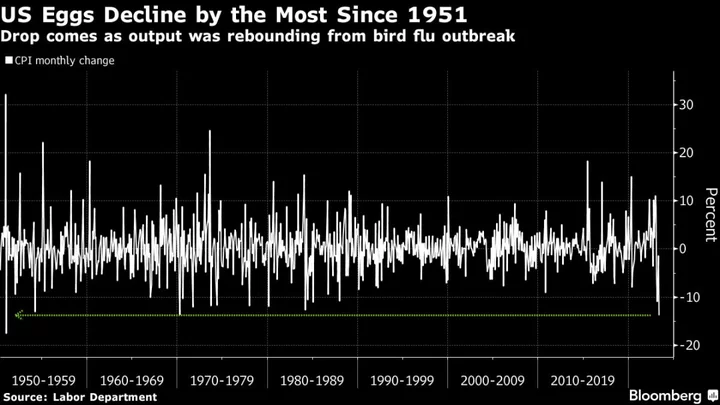
Egg Prices Drop by Most Since 1951 as Frozen Juice Soars by Record
Egg prices tumbled in May by the most since 1951 as US output continued to rebound from the
2023-06-13 21:46
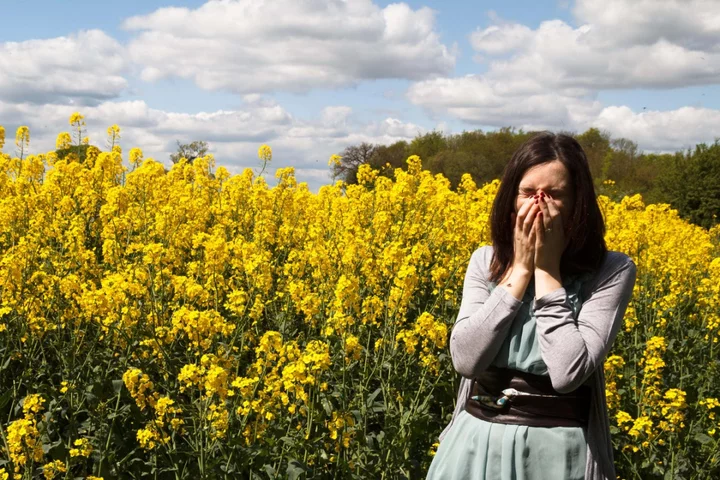
7 hay fever hacks to ease your symptoms this summer
According to health officials, people sought advice for hay fever symptoms once every three seconds on Sunday. And today, the Met Office predicted the pollen count would be “very high” in most of England and Wales.Hay fever is usually at its worst between March and September – and right now, thousands of people affected are desperate for a solution to their pollen-induced runny noses, itchy eyes and tickly coughs, and other irritating symptoms. The hay fever pages on the NHS.uk website reportedly received 122,650 visits last week alone. So, what can you do to help with hay fever symptoms? 1. Don’t rub your eyes “Red, itchy, swollen eyes are often a real problem for hay fever sufferers,” explained pharmacist Sid Dajani, from Golden Eye Eye Care. “As tempting as it is, don’t rub your eyes. Clean them free of pollen frequently, with cotton lint and cold water, and treat the symptoms immediately with eye drops or eye ointment containing propamidine isetionate.”2. Don sunnies and keep your clothes cleanReducing your exposure to pollen, however possible, can really help. Dajani added: “Wear wrap-around sunglasses to protect your eyes when outside, and have a shower when you get in from work and put your clothes straight in the wash to help remove all pollen. It’s also best to avoid drying clothes outside.”3. Think about your diet What you eat may have an impact too. GP Dr Nisa Aslam suggested: “Stick to an anti-inflammatory diet, with plenty of fruit and vegetables, beans, grains and oily fish, whilst limiting processed food high in fat, sugar and salt. Look for anti-inflammatory, antioxidant herbs, like chamomile, ginger, nettle and turmeric. These can be consumed in the form of supplements or beverages.”4. Protect your nostrilsDr Adam Fox, allergist and advisor to Clarityn, said: “Pollen balms such as petroleum jelly rubbed around the rim of the nostrils can help trap pollen before it enters the nose, and salt water nasal sprays help rinse pollen particles out of the nose, preventing them from sitting in there and causing more symptoms.”5. Keep the windows shut As tempting as it may be to fling windows open at this time of year, Dijani said: “Keep windows, including car windows, and doors shut. Venture out as little as possible. Towns and cities are no more friendly to hay fever sufferers than the countryside, due in part to more extensive ‘greening’ of urban areas.” 6. Prepare for the pollen count Checking to see when the pollen is particularly high can help you prepare. “If you know you have symptoms every year, then it makes sense to be prepared in advance,” said Fox. “If you require a nasal spray, then starting to use it before the season starts will make it much more effective. For adults, these can be brought over the counter, whilst children will need a prescription.” 7. Stay in when the count is really high And if symptoms are still really getting to you? “Avoid going outside when the pollen count is at its highest – in the middle of the morning or the early evening,” said Dajani.
2023-06-13 20:52

Playing Starfield on PC Requires an SSD
Bethesda's highly-anticipated action RPG Starfield can only be played on PCs that have an SSD
2023-06-13 20:29

A Greenwashing Lawsuit Against Delta Aims to Set a Precedent
As tranquil instrumental music plays over gauzy images of nature, a woman’s voice-over begins. “Isn’t it a paradox,”
2023-06-13 19:45

FTC Sues Microsoft to Block Activision Blizzard Acquisition
The Federal Trade Commission (FTC) is suing Microsoft in order to block its $68.7 billion
2023-06-13 18:50
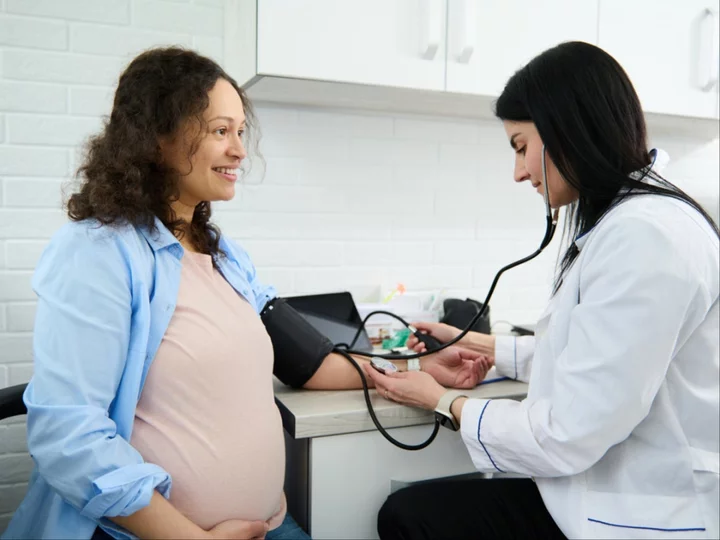
What is eclampsia and how rare is it?
Eclampsia is a rare complication of pre-eclampsia and can cause fits, seizures and strokes. The condition eclampsia describes the type of convulsion or fit – an involuntary contraction of the muscles – pregnant women can experience from week 20 of the pregnancy or immediately after the birth. What are the symptoms/ warning signs? Pre-eclampsia is a condition that affects some pregnant women, usually during the second half of the pregnancy (from 20 weeks) or soon after the baby is delivered. Early signs of pre-eclampsia include having high blood pressure (hypertension) and protein in your urine, according to the NHS. It’s difficult to notice the signs, but they can be picked up during routine antenatal appointments. Further symptoms of pre-eclampsia include a severe headache, vision problems, such as blurring or flashing, pain below the ribs, vomiting and sudden swelling of the face, hands or feet. How common are pre-eclampsia and eclampsia? Most cases of pre-eclampsia do not lead to serious problems or complications, but there is a risk that the mother will develop fits and seizures, called eclampsia, which can be life-threatening for the mother and baby. However, this is rare. According to the NHS, the earlier pre-eclampsia is diagnosed and monitored, the better the outlook for the mother and baby. Most women make a full recovery after having a fit, but they can put the mother and baby’s health at risk. According to the pregnancy charity Tommy’s. eclampsia is quite rare in the UK, with an estimated one case for every 4,000 pregnancies. What are the causes of pre-eclampsia? Though the exact cause of pre-eclampsia is not known, its thought to occur when there is a problem with the placenta – the organ that links the baby and mother’s blood supply. Who is affected by pre-eclampsia? A number of health conditions can increase your chances of developing pre-eclampsia, including having diabetes, high blood pressure or kidney disease before pregnancy. Having an autoimmune condition, such as lupus or antiphospholipid syndrome, or having high blood pressure or BMI, can also increase your chances of pre-eclampsia. A family history of the condition, being older than 40, or having more than 10 years since your last pregnancy can also increase your chances of pre-eclampsia. Expecting multiple babies, like twins or triplets, may also put a patient at risk. What are the treatments for pre-eclampsia? After being diagnosed with pre-eclampsia, a patient will be monitored closely by a specialist to see how severe the condition is. According to NHS guidance, the only way to cure pre-eclampsia is to deliver the baby, hence why monitoring the mother and baby is crucial until the child is delivered. Patients are often offered medicine to lower their blood pressure until the baby is born. Read More Tori Bowie: Pregnant US Olympic sprinter’s cause of death revealed Vegan family writes letter to neighbours requesting they close their windows when cooking meat Kelis addresses Bill Murray dating rumours for the first time How to take care of your mental health at festivals How to stop hay fever fast? Only one thing worked for me Jamie Foxx’s rep addresses conspiracy Covid vaccine left actor ‘paralyzed and blind’
2023-06-13 17:59
